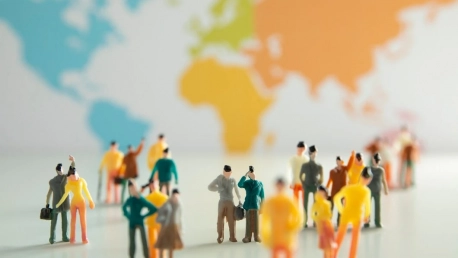In a world marred by widespread human rights abuses, civil society stands as a crucial defender of international human rights law (IHRL) and international humanitarian law (IHL). An event hosted by the Organization for Security and Co-operation in Europe (OSCE) spotlights the vital role that civil society plays in advocating for and upholding these rights. Amidst various challenges, civil society organizations (CSOs) and human rights defenders (HRDs) have become indispensable in ensuring compliance with human rights norms by rigorously monitoring and documenting violations. Their unwavering commitment underscores the importance of civil participation in the global effort to protect human dignity and legal rights. As state actors navigate complex pressures, the vigilance of civil society becomes ever more critical in promoting the enforcement of IHRL and IHL.
The Vital Monitoring Role of Civil Society Organizations
Civil society organizations and human rights defenders act as the world’s conscience, meticulously documenting breaches of IHRL and IHL. Their vigilance ensures that states and other powers are held accountable for their actions. This tedious act of monitoring is not without consequence, but it is essential for preserving the integrity of global human rights norms. By gathering evidence and shining a spotlight on atrocities, these organizations compel international bodies to respond, leading to sanctions, interventions, or international court proceedings. The precise data they collect also serves as foundational evidence in advocacy efforts, prompting policy amendments and galvanizing public opinion to rally behind the cause of justice and decency.Civil society’s work in the human rights domain is underpinned by a commitment to truth and justice. These entities often operate in hostile environments where gathering factual information can be as perilous as it is crucial. Their painstaking documentation activities encompass interviewing witnesses, compiling reports on human rights abuses, and disseminating these findings globally. Tangible outcomes from this work have included initiating dialogues on human rights issues, influencing legislative reforms, and even catalyzing international interventions in extreme cases.
Advocacy and Protection Amidst Turmoil
In times of strife, civil society and human rights defenders (HRDs) must swiftly adapt, crafting innovative ways to disseminate their messages while staying protected. They utilize digital outreach, lobby globally, and form powerful alliances to tilt the scales back towards justice, keeping the human rights beacon alight amidst lawlessness.These advocates have marked successes, shaping international laws and halting rights violations through targeted legal actions. They champion international human rights law (IHRL) and international humanitarian law (IHL), while also offering direct aid to those affected by abuses. Their multifaceted strategy spans legal support, campaigning for public awareness, and engaging with international human rights bodies to uphold and promote globally recognized legal standards.
Navigating the Challenges and Threats Faced by HRDs
The road for human rights defenders is fraught with peril. Intimidation, legal prosecution, and violence are just a few of the risks they contend with on a daily basis. Forced exile is an all-too-common reality, creating a diaspora of advocates who must navigate unfamiliar and sometimes hostile terrains abroad. These challenges cripple the capacity of defenders to carry out their crucial roles, yet they persevere, often at great personal risk. Reflecting on these hardships is essential to identify protective measures and fortify the global human rights advocacy network.Efforts to protect HRDs are as varied as the threats they face. Some are internal, incorporating strategies for risk assessment and response within their organizations, while others are external, relying on international mechanisms for support and intervention. The creation of rapid response networks to provide legal, financial, and moral support for HRDs in distress is an important development. Protective fellowships and safe harbor initiatives for those in exile ensure that, even when displaced, HRDs can continue their pivotal work. Recognizing the importance of these support systems is a crucial aspect of strengthening the global human rights infrastructure.
The Role of the International Community and Support Networks
International collaboration is vital in bolstering human rights defenders (HRDs). The synergy of OSCE states, institutions, and nonprofits is key to a thriving rights landscape. Creating safe spaces for HRDs, exerting diplomatic influence, and funding civil activities are crucial support facets. Positive are the steps by global entities to foster dialogue and aid, especially for exiled HRDs enduring risky conditions.The coming OSCE summit is a model of partnership for addressing the complexities of human rights protection. It gathers various sector and country representatives to underscore civil society’s significance and develop robust support strategies. Through cooperation and sharing resources, the meeting aims to strengthen the HRD network. The OSCE’s commitment to open discourse and united effort is evident in its invitation to register for the conference, join the conversation, and exchange tactics.









